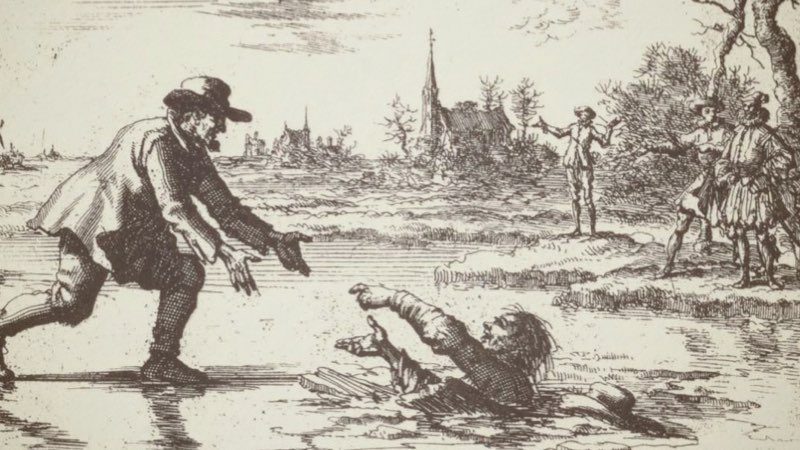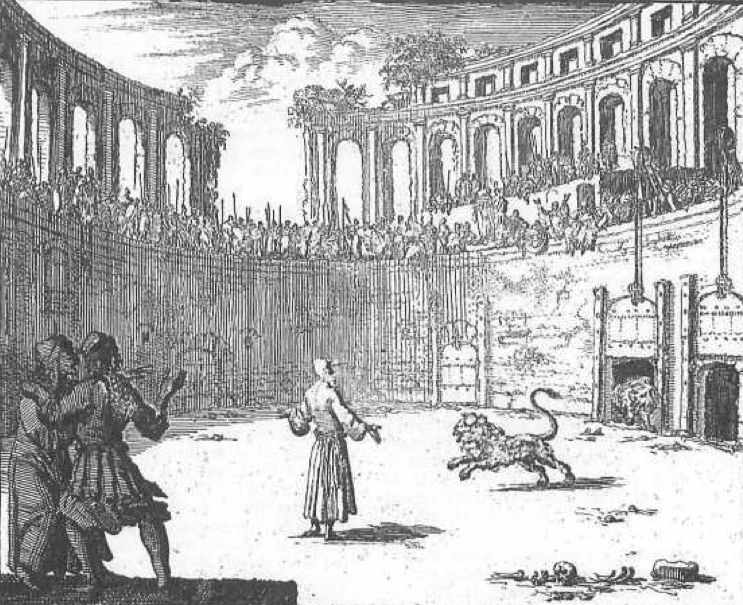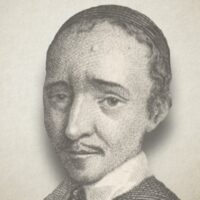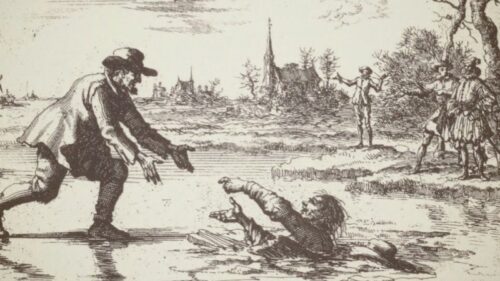
56. Ignatius
Ignatius, a student under John, devoured by wild animals in Rome, A.D. 111
Ignatius, A Disciple Of The Apostle John, Devoured By Wild Beasts In A Circus At Rome, For The Testimony Of The Son Of God, A.D. 111
Ignatius, a disciple of the apostle John, and a successor of Peter and Evodius, was in the service of the church of Christ at Antioch in Syria. He was a very God-fearing man, and faithful and diligent in his ministrations. He was surnamed Theophorus, that is, The Bearer of God, apparently because he often bore the name of God and his Saviour in his mouth, and led a godly life. He was wont to say frequently: “The life of man is a continual death, unless it be that Christ liveth in us.” Likewise: “The crucified Christ is my only and entire love.” And: “He that allows himself to be called after any other than Christ, is not God.” And again: “As the world hates the Christians, so God loves them.” A. Mellin., jol. 15, col. 1, jrom Iqnat. in Epist. ad Rom. et alibe.
Having learned that the Emperor Trajan, after the victories which he had achieved against the Dacians, Armenians, Assyrians, and other eastern nations, gave thanks at Antioch unto the gods, and offered great sacrifices unto them, as though these victories had proceeded from them, Ignatius, as we are informed by Nicephorus, reproved the Emperor for it, and this openly in the temple.
The Emperor, exceedingly enraged on this account, caused Ignatius to be apprehended, yet, for fear of an uproar, because Ignatius was held in great respect in Antioch, he did not have him punished there but committed him into the hands of ten soldiers, and sent him bound to Rome, there to have him punished.
In the meantime his sentence of death was made known to him—in what manner and where he was to die; namely, that he should be torn to pieces by wild beasts at Rome.
On his way thither, he wrote several consolatory epistles to his friends, the faithful in Christ Jesus; and also to different churches, as to those of Smyrna, Ephesus, Philadelphia, Trallis, Magnesia, Tarsus, Philippi, and especially to the church of Christ at Rome; which letter he sent before his arrival there.
It appears that the thought of being torn to pieces by the teeth of wild beasts was constantly on his mind during the journey; yet not as a matter of dread, but of earnest desire. This he mentions in his letter to the church at Rome, writing thus: “Journeying from Syria to Rome, by water and by land, by day and by night, I fight with wild beasts, bound between ten leopards, who, the more I stroke, and show myself friendly to them, the more cruel and malignant they become. However, through the cruelties and torments which they daily inflict upon me, I am more and more exercised and instructed; nevertheless, I am not justified thereby. O that I were already with the beasts, which are ready to devour me! I hope that, ere long, I shall find them such as I wish them to be, that is, cruel enough to destroy me speedily. But if they will not fall upon and tear me, I shall kindly allure them, so that they will not spare me, as they have already spared several Christians, but will quickly tear me in pieces, and devour me. Forgive me for speaking thus; I know what I need. Now only I begin to be a disciple of Christ. I regard neither things visible nor invisible, at which the world is amazed. It is sufficient for me if I but become a partaker of Christ. Let the devil and evil men afflict me with all manner of pain and torment, with fire, with cross, with fighting against wild beasts, with scattering of the members and bones of my body; all this I esteem very little, if I but enjoy Christ. Only pray for me, that inward and outward strength be given me, not only to speak or write this, but also to perform and endure it, so that I may not only be called a Christian, but also be found one in truth.” Ignat. in Epist. ad Rom.
Having arrived at Rome, he was delivered by the soldiers to the governor, together with the letters of the Emperor, which contained his sentence of death. He was kept in prison several days, until a certain feast-day of the Romans, when the Governor, according to the order of the Emperor, had him brought forth into the amphitheatre. First of all they sought by many torments, to induce him to blaspheme the name of Christ, and offer sacrifice to the gods. But when Ignatius did not weaken in his faith, but was only, the longer, the more strengthened in refusing to offer heathen sacrifices, he was forthwith condemned by the Roman Senate, immediately to be cast before the lions.
As Ignatius was led away from the presence of the Senate, to the innermost enclosure, or pit of the lions, he frequently repeated the name of Jesus in the conversation which he, while on the way, carried on with the believers, as well as in his secret prayer to God. Being asked why he did so, he replied thus: “My dear Jesus, my Saviour, is so deeply written in my heart, that I feel confident, that if my heart were to be cut open and chopped to pieces, the name of Jesus would be found written on every piece.” With this the pious man indicated that not only his mouth, but the innermost parts of his heart were filled with the love of Jesus: for out of the abundance of the heart the mouth speaketh. Thus, also Paul, being filled with the love of Jesus Christ, has used, in his letters, as much as two hundred times (as has been counted) the words, “Our Lord Jesus Christ.” The name “Jesus” he employs as much as five hundred times.
When the whole multitude of the people were assembled, to witness the death of Ignatius (for the report had spread throughout the whole city, that a bishop had been brought from Syria, who, according to the sentence of the Emperor, was to fight against the wild beast), Ignatius was brought forth and placed in the middle of the amphitheatre. Thereupon Ignatius, with a bold heart, thus addressed the people which stood around: “O ye Romans, all you who have come to witness with your own eyes this combat; know ye, that this punishment has not been laid upon me on account of any misdeed or crime; for such I have in no wise committed, but that I may come to God, for whom I long, and whom to enjoy is my insatiable desire. For, I am the grain of God. I am ground by the teeth of the beast, that I may be found a pure bread of Christ, who is to me the bread of life.” These words spake Ignatius, when he stood in the middle of the amphitheatre, and when he heard the lions roar; which the brethren of the church who also stood among the people heard and testified to.
As soon as he had spoken these words, two dreadful, hungry lions were let out to him from their pits, who instantly tore and devoured him, leaving almost nothing, or, at least, very little, even of his bones. Thus fell asleep, happy in the Lord, this faithful martyr of Jesus Christ. A. D. Ill, in the 12th year of Emperor Trajan. Compare Abr. Mell. 1st book of the Hist, der Vervolg. en Mart., printed (1619, fol. 25, col. 1-4, and fol. 26, col. 1, with Jon. Gysii Hist. Mart., fol. 15, col. 2, 3. Also, W.Baudart.inApophth.Christian,printedA.D 1640. The first book, in the second Apophthegm, on the name Ignatius, pp. 37, 38, from different other authors.
Thieleman J. Van Braght (1625-1664) was an Anabaptist who is best known for writing a history of the Christian witness throughout the centuries entitled “The Bloody Theater or Martyrs Mirror of the Defenseless Christians who baptized only upon confession of faith, and who suffered and died for the testimony of Jesus, their Saviour, from the time of Christ to the year A.D. 1660” (1660).
Thieleman J. Van Braght, Martyrs Mirror





